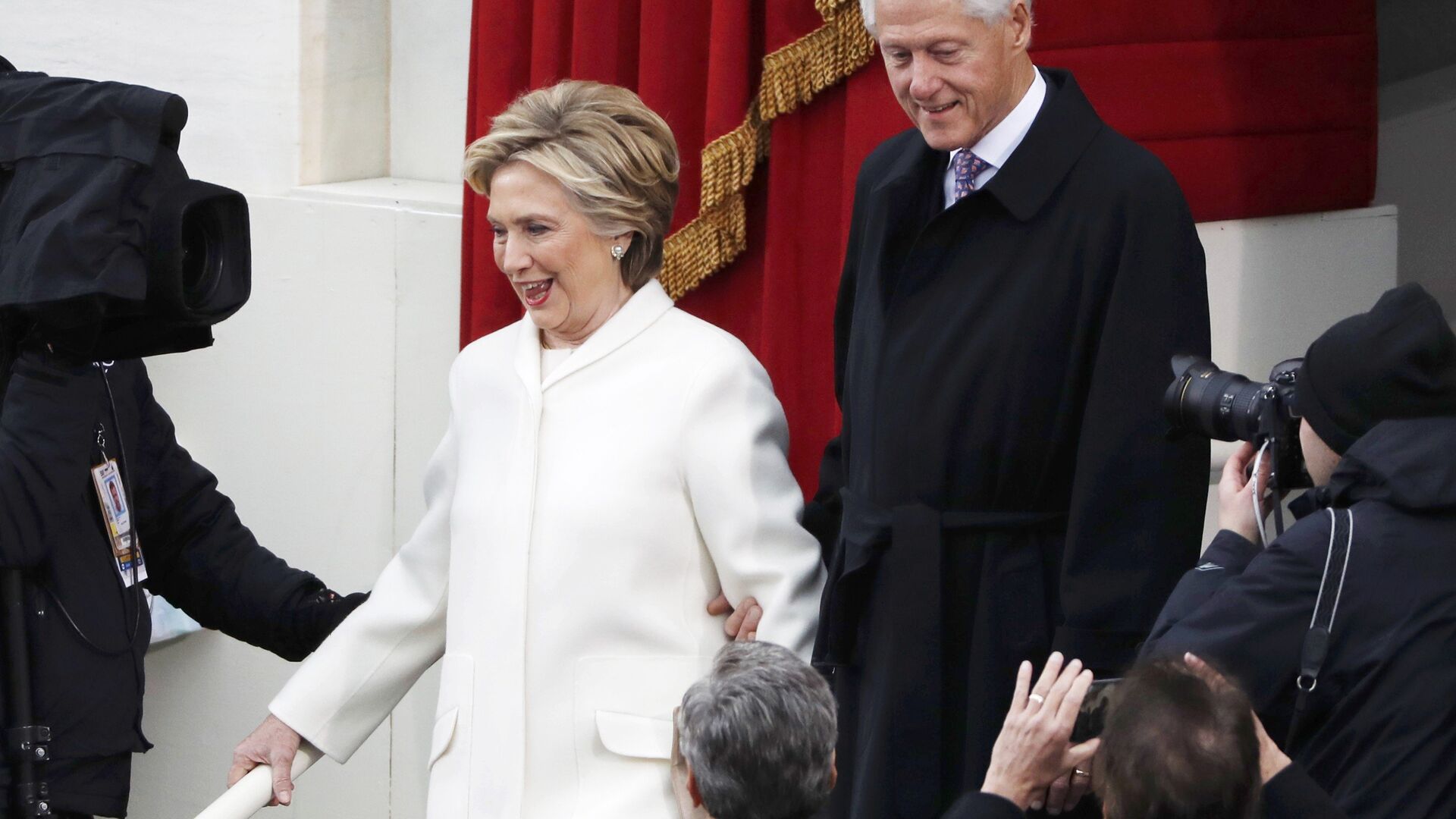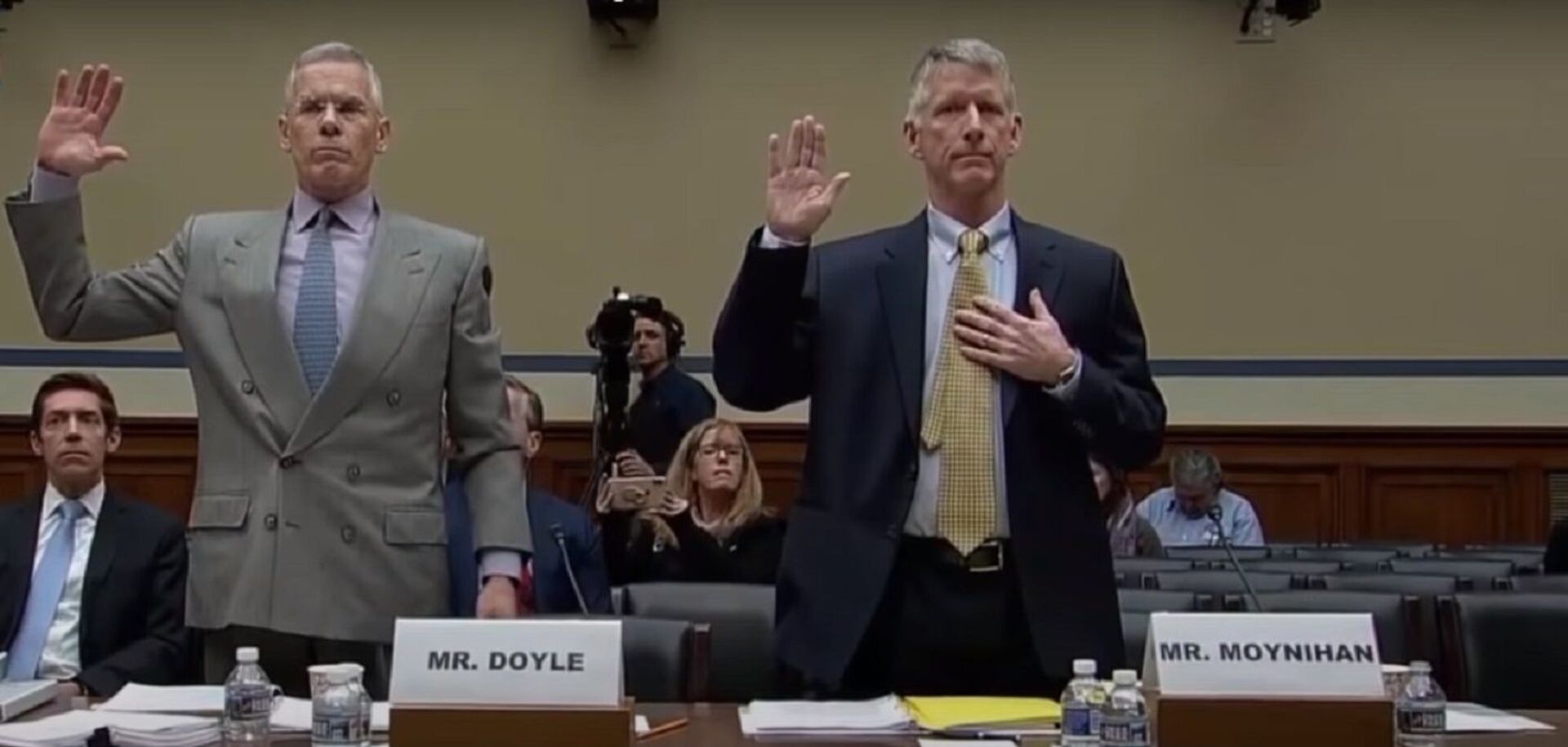The US Tax Court order came amid proceedings in the case by whistleblowers Lawrence W. Doyle and John F. Moynihan in March 2019 against the IRS. The two graduates of the Catholic Jesuit College of the Holy Cross and independent expert forensic investigators have been pursuing the Clinton Foundation for nearly four years over alleged fraud and financial mismanagement.
While testifying before the House Oversight and Government Reform Committee in December 2018, Doyle and Moynihan alleged that the Clinton Foundation owes between $400 million and $2.5 billion in taxes. The two Jesuit College alumni told US lawmakers that they had collected approximately 100 exhibits in excess of 6,000 pages, and came to the conclusion that the foundation:
· did not operate as a tax-exempt 501(c)(3) organisation;
· made material misrepresentations to the IRS about its operations and entities;
· acted as a nothing short of a foreign agent thus making its charitable tax-exempt protection void.
Doyle and Moynihan filed whistleblower submissions with the IRS over the charity's suspected misdeeds as early as in August 2017. However, the government body appeared to be unwilling to consider their claim despite the IRS website site encouraging everyone to immediately report tax scams.
Having received the final denial from the IRS in February 2019, the two independent expert forensic investigators filed a lawsuit with the US Tax Court.
In October 2020, they scored their first victory in court against the IRS. Judge Gustafson ruled at the time that the IRS' Whistleblower Office (WO) had "abused its discretion" in trying to dismiss "specific credible documentation" put forward by Doyle and Moynihan and allowed the case to proceed.
In addition to this, the judge drew attention to apparent inconsistencies in the IRS' handling of the whistleblowers' request. In particular, judging from the IRS Criminal Investigation (CI) division's documentation, it remained unclear whether it had used the information provided by Doyle and Moynihan in any investigation into the charity.
"CI’s reply was a non-answer that looks like it may have been a deliberate evasion: 'The claim was appropriately declined by criminal investigation'. But was CI 'working with' petitioners or not? CI did not say", Gustafson's October 2020 opinion read.
In his latest ruling, Judge suggested IRS Whistleblower Office was withholding important info for case.
— Financial Bounty Hunters USA (@LWDoyleUSA) May 12, 2021
There are facts/info, uniquely w/in knowledge of Whistleblower Office that need to be considered to resolve whistleblowers' claims. https://t.co/oXGe7Eq8yJ via @JustTheNews
This controversy has yet to be dispelled, as Gustafson directed the agency on 22 April 2021 to fix the "gaps" in their records:
"The WO must further investigate to determine whether CI proceeded with an investigation based on petitioners' information and collected proceeds… It seems clear we should remand the case to the WO so that it can explore this gap", the judge ruled last month.
Although the Clinton Foundation previously acknowledged that past internal audits had exposed compliance problems with some of its practices, it insisted that it has fixed the problems, denying the whistleblowers' allegations, according to Just the News. For its part, the FBI repeatedly looked into the charity's alleged fraud, but did not implicate anyone in any illegal activities.
According to Wall Street analyst Charles Ortel, Imaad Zuberi, a Pakistani-American venture capitalist and political fundraiser, and Lebanese-Nigerian billionaire Gilbert Chagoury apparently possess information about the Clinton Foundation's financial operations. In particular, they could answer questions about the charity's alleged "pay-to-play" schemes involving foreign governments. However, it is unclear whether they have shared this information with the US federal authorities.



